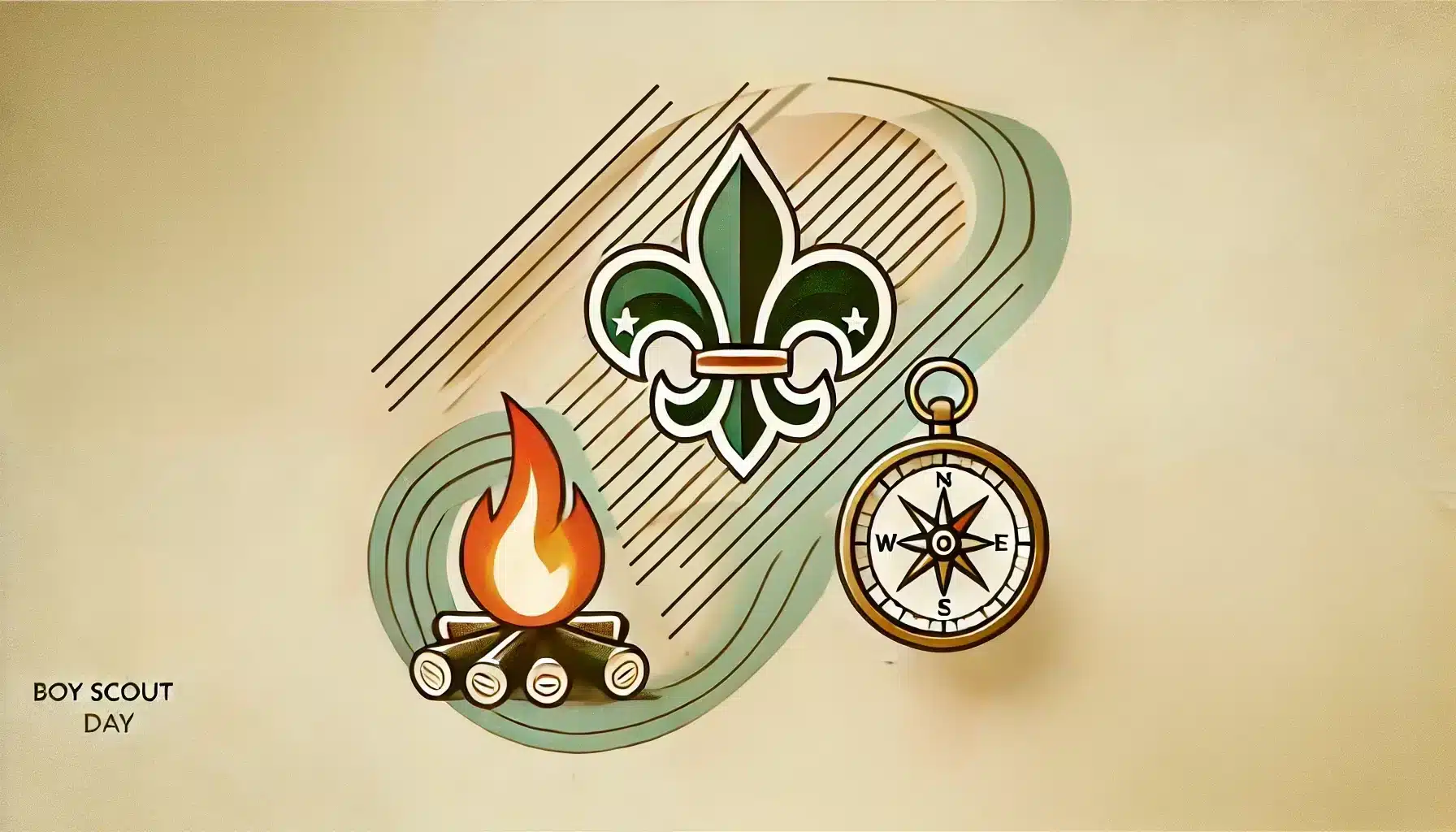What is National Boy Scout Day?
National Boy Scout Day, observed annually on February 8th, commemorates the founding of the Boy Scouts of America (BSA) in 1910. This day celebrates the organization’s dedication to shaping young individuals into responsible leaders and active members of society. Through activities that emphasize outdoor skills, community service, and moral character, Scouting has become a cornerstone of youth development across the United States.
The day also provides an opportunity for Scouts, families, alumni, and communities to reflect on the values and principles that have guided the BSA for over a century.
Historical Background
The Boy Scout movement began in Great Britain in 1908, founded by Lieutenant General Robert S.S. Baden-Powell. His book, Scouting for Boys, introduced ideas about outdoor survival, teamwork, and moral character that resonated with young people. The movement quickly gained traction, inspiring similar programs around the world.
In the United States, William D. Boyce, a businessman and publisher, encountered Scouting during a trip to London. Legend has it that a young British Scout helped Boyce find his way through a dense fog, refusing a tip for his good deed and explaining it was his duty as a Scout. Inspired by this experience, Boyce established the Boy Scouts of America on February 8, 1910. The BSA adapted Baden-Powell’s principles to the American context, emphasizing citizenship, ethical conduct, and physical fitness.
Since its inception, the Boy Scouts of America has grown to include millions of members, with programs like Cub Scouts, Scouts BSA, and Venturing offering opportunities for boys and girls of various ages. The BSA has also introduced merit badges to help participants develop skills ranging from first aid to environmental science.
Who Celebrates National Boy Scout Day?
- Current Scouts and Leaders: Engage in activities that reflect the core values of Scouting, including outdoor adventures, skill-building, and community service.
- Alumni: Reflect on their Scouting experiences and the ways these lessons shaped their personal and professional lives.
- Families: Support their children by attending Scout events and encouraging participation in Scouting activities.
- Community Members: Recognize the contributions of local Scout troops and support their initiatives.
- Educational Institutions: Highlight the importance of youth programs like Scouting, which promote leadership, civic responsibility, and teamwork.
Themes and Messages
National Boy Scout Day emphasizes the importance of preparing young individuals for life’s challenges through skill-building, ethical training, and community involvement. It also serves as a reminder of the enduring relevance of Scouting values in modern society.
A central theme for the day is:
“Be Prepared;Celebrating over a century of Scouting excellence.”
Colors
- Green: Represents growth, learning, and a connection to nature, central to Scouting.
- Khaki: Symbolizes the traditional Scout uniform and readiness for challenges.
- Gold: Denotes achievement and the high standards upheld by Scouts.
Symbols
- Fleur-de-lis: The universal emblem of Scouting, representing service, unity, and direction.
- Knot: Signifies preparedness and the importance of learning practical skills.
- Compass: Reflects moral guidance and the values instilled by Scouting principles.
Patterns
- Chevron Stripes: Represent rank advancements and achievements in Scouting.
- Trail Marks: Symbolize the adventures and journeys experienced by Scouts.
- Campfire Imagery: Evokes the camaraderie and learning that occur during Scout gatherings.
How to Celebrate National Boy Scout Day
- Participate in Community Service: Organize or join service projects that benefit the local community, reflecting the Scout slogan, “Do a Good Turn Daily.”
- Attend a Scout Meeting or Event: Engage with local troops to learn about their activities and support their initiatives.
- Share Scouting Memories: Alumni can share stories, photos, and lessons learned from their Scouting experiences on social media using themed hashtags.
- Learn a New Skill: Embrace the spirit of Scouting by learning a new skill or hobby, mirroring the diverse merit badges offered by the BSA.
- Support Scouting Programs: Donate to or volunteer with local Scout troops to help foster the next generation of leaders.
Notable Contributions of the Boy Scouts
The Boy Scouts of America has left an indelible mark on society, producing alumni who have gone on to make significant contributions in various fields. Notable Scouts include astronauts Neil Armstrong and Jim Lovell, former U.S. President Gerald Ford, and entrepreneur Bill Gates. Their achievements exemplify the transformative power of Scouting principles.
The organization has also played a crucial role in environmental conservation, disaster relief, and community building. Scouts have participated in countless initiatives, such as tree planting, food drives, and emergency response efforts, demonstrating the real-world impact of Scouting values.
Most Used Hashtags
- #NationalBoyScoutDay
- #BoyScouts
- #Scouting
- #BePrepared
- #ScoutingAdventure
Why is National Boy Scout Day Important?
National Boy Scout Day celebrates the profound influence of Scouting on individuals and communities. Through its programs, the BSA has instilled a sense of responsibility, leadership, and service in millions of youth. By teaching essential life skills and encouraging ethical behavior, Scouting helps prepare young people for success in their personal and professional lives.
This day also highlights the importance of community service and environmental stewardship, values that are central to Scouting. It serves as an opportunity to acknowledge the contributions of Scouts and to support programs that foster the development of future leaders.
Features
February 8: Boy Scout Day (United States)
Why do you keep falling for the same type?
Read the article Lovemaps: the hidden blueprint of our love.
Did you not find what you were looking for? Let me help you find more.

